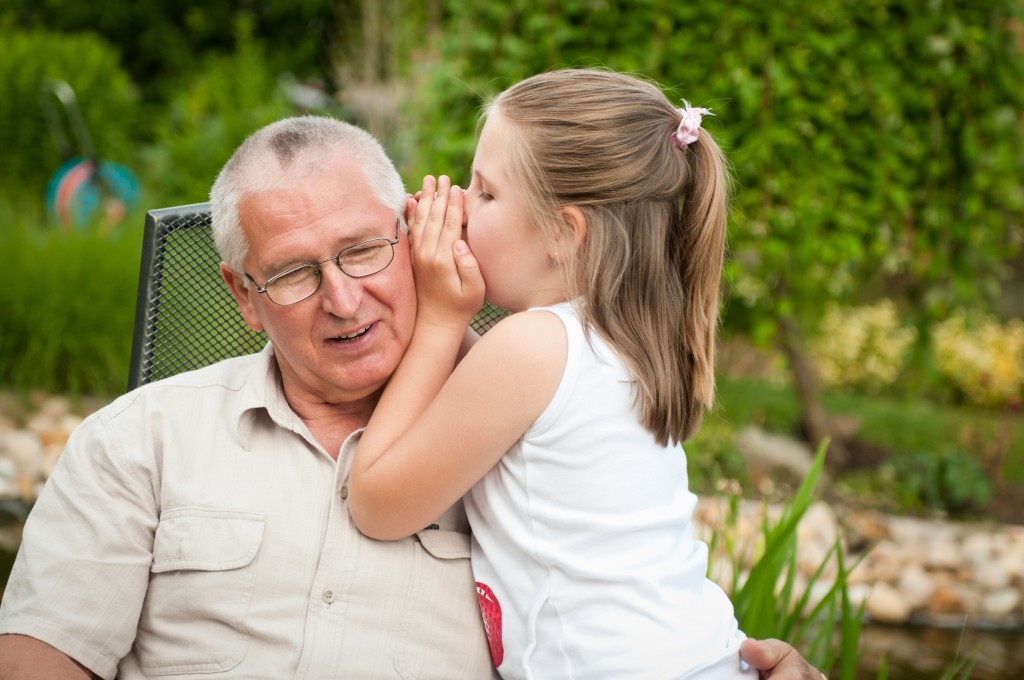Before kinship placement became popular in child welfare agencies throughout the country, families had already been taking care of their own. Preceding foster care, children only had family to turn to when challenging times came. But, with all of the good things kinship providers like you are doing, how come you aren’t talking about it?

Kinship Placement: The Benefit of Placement with Relatives
According to an article by the Child Welfare Information Gateway, most states (approximately 45) in the U.S. give preference of placement of foster children to relatives, namely grandparents.
Today, statistics show that foster kids who are cared for by a relative have a better chance for success. It’s no wonder that child welfare agencies seek to place children that are being removed from their homes with a relative or someone close to them. You can read more about the significance of kinship placement here.
There seems to be a common denominator in most kinship families. While “stranger” families welcome an open dialogue about the challenges and rewards of foster parenting, kinship families tend to keep to themselves.
Kinship Placement: “What Happens in the Family Stays in the Family”
You may have heard the saying, “What happens in this house stays in this house.” It’s not the norm to discuss sensitive subjects outside of the home or, in this case, the family. It’s instinct to protect those you love. You might have a daughter that is battling drug addiction and is not able to properly care for her children. You not only care about the welfare of her kids, but you also want to protect her.
No one’s family is perfect. As a parent, you may have tried everything you could to ensure your child’s success. Sometimes, no matter how great your effort, the outcome is less than favorable. Other times, steps could have been taken to prevent that outcome.
Maybe you didn’t want to deal with things that were hard to talk about early on (i.e. sexual abuse, the passing of a family member), which is understandable. Maybe you didn’t notice signs, like isolation or anger in your child, that led to future problems.
The mistakes we make do not make us who we are. As we learn from them, they make us better and position us to help our families and others.
Talking about these issues can open the door to address any psychological effects this may have on your family. For one, talking with your relative in care can give him an outlet that will help him cope with his life changes. Also, speaking to others who can relate to your situation, or to a professional, can give you insight that can bring a tremendous benefit to your family. Shedding light on what has been in the dark can prevent others from traveling a similar path.
Kinship Placement: “It’s Just What We Do”
You want the best for your family. When family members reach out a hand for help, you grab it and let them know you are there to support. For relatives, it’s not a matter of if you can help, but how. While it’s normal to take care of your own flesh and blood, it may not be a topic of discussion – it’s just what you do. The family bond creates an unspoken understanding that no matter the sacrifice, you will all work together for the greater good.
Kinship Placement: Strength in Numbers
There are many kinship families out there just like you. They may be able to relate to some things you’re going through. You may be angry because your life has changed. You may miss being able to do things like go out to the movies or your favorite restaurant whenever you choose. Instead of having the opportunity of spoiling your grandchildren, you now have to take on the role of the stricter parent. Like you, other kinship providers may not want to express how they feel or know how to verbalize what they are going through.
Knowing you are not alone and sharing your story might encourage others, and they can encourage you in return.
Talking about your experiences can help other kinship providers who are dealing with similar situations. It might let them know they don’t have to be afraid or ashamed to share their experiences as well.
There’s strength in both numbers and knowledge – so let’s talk about it.
If you live in New Jersey, learn about the kinship support that is readily available for you.
If you don’t live in New Jersey, there is a wealth of information available to assist you.
